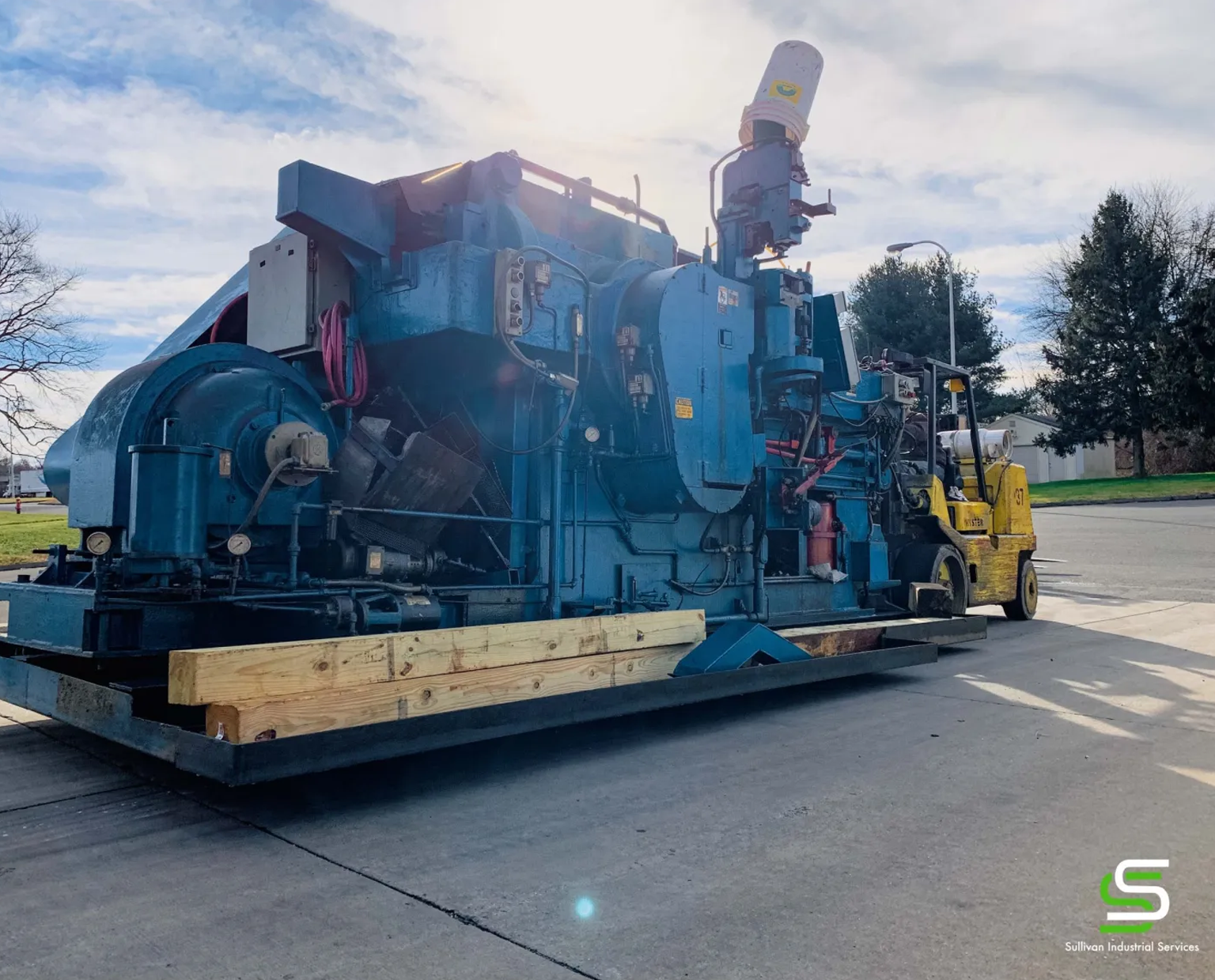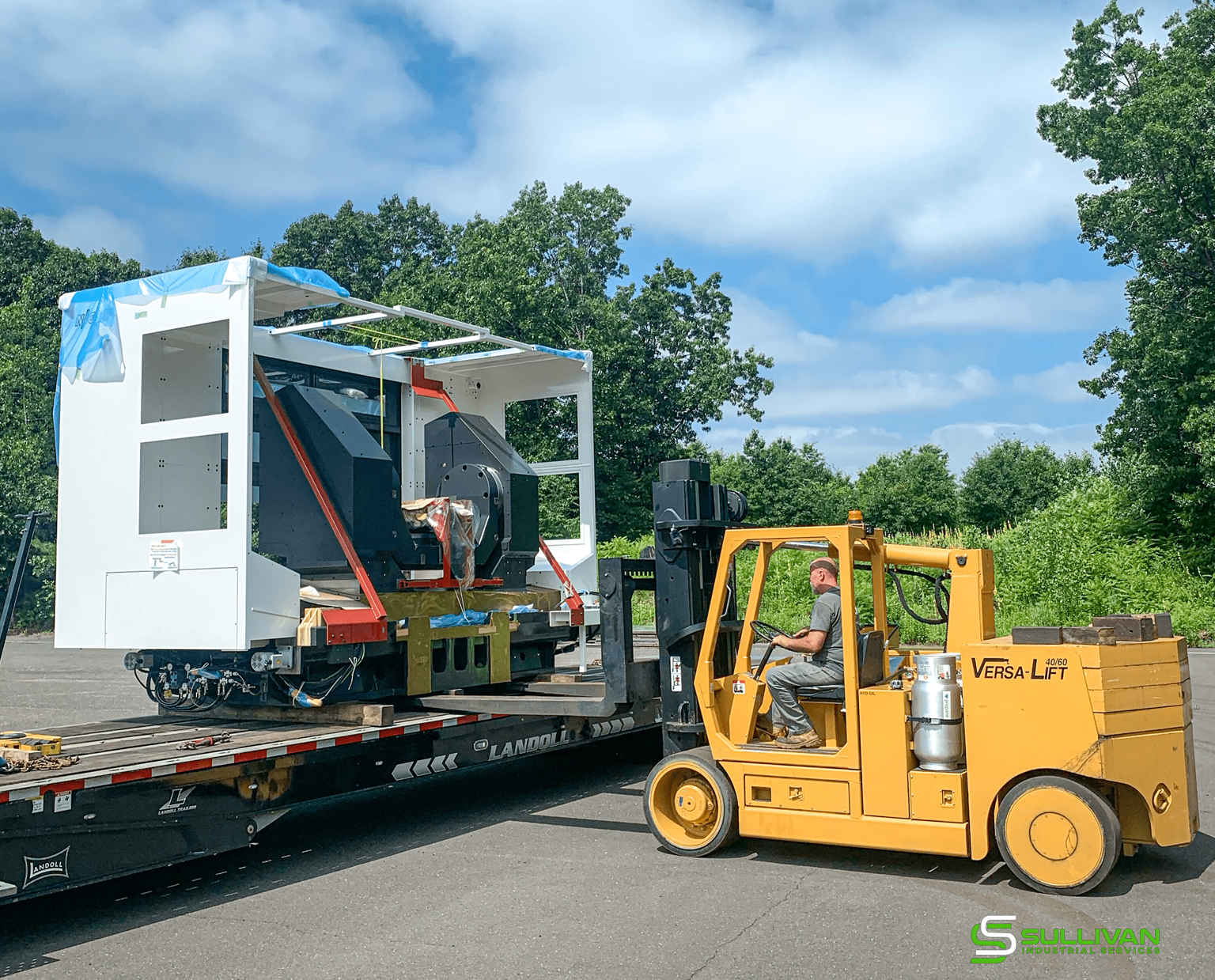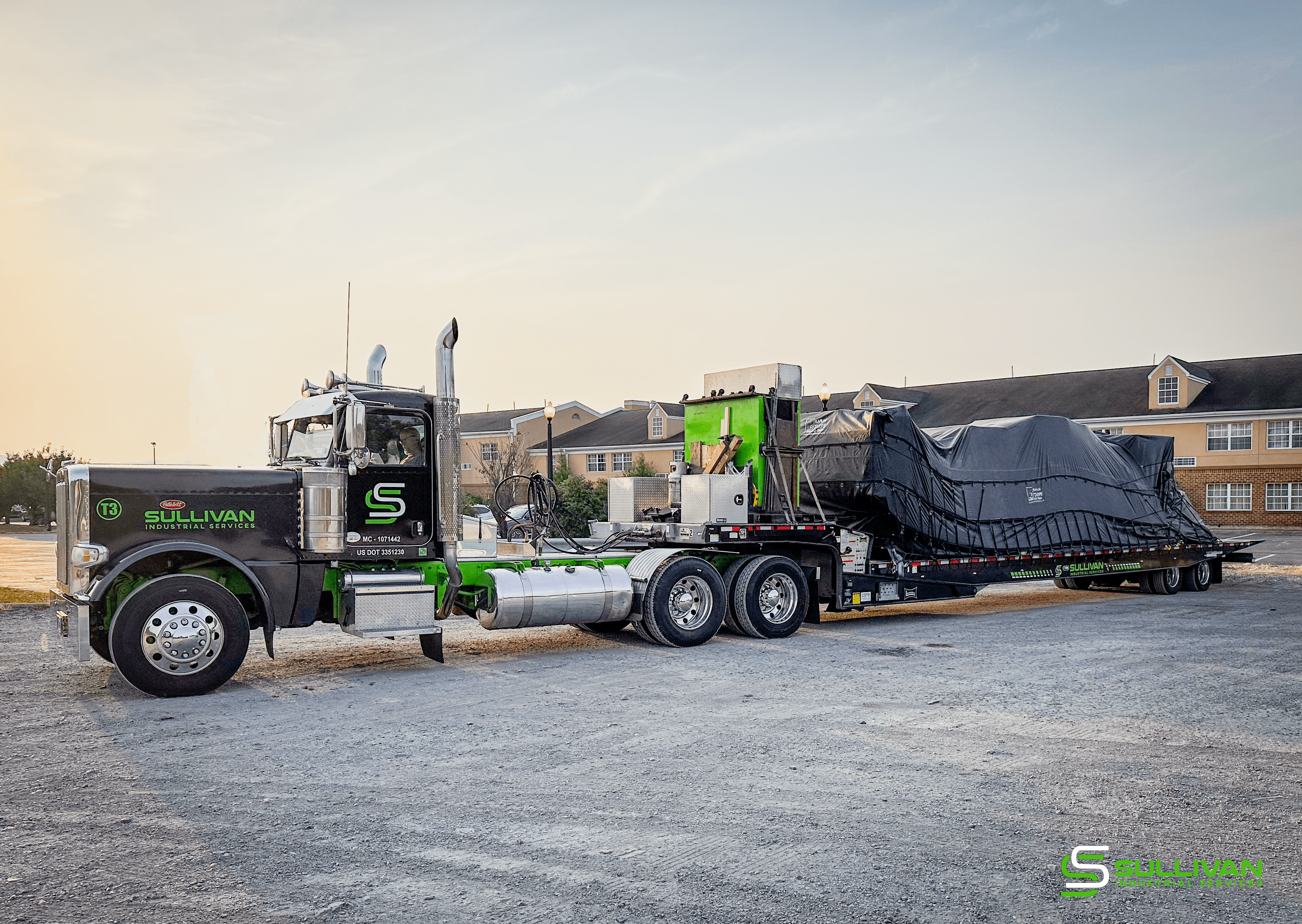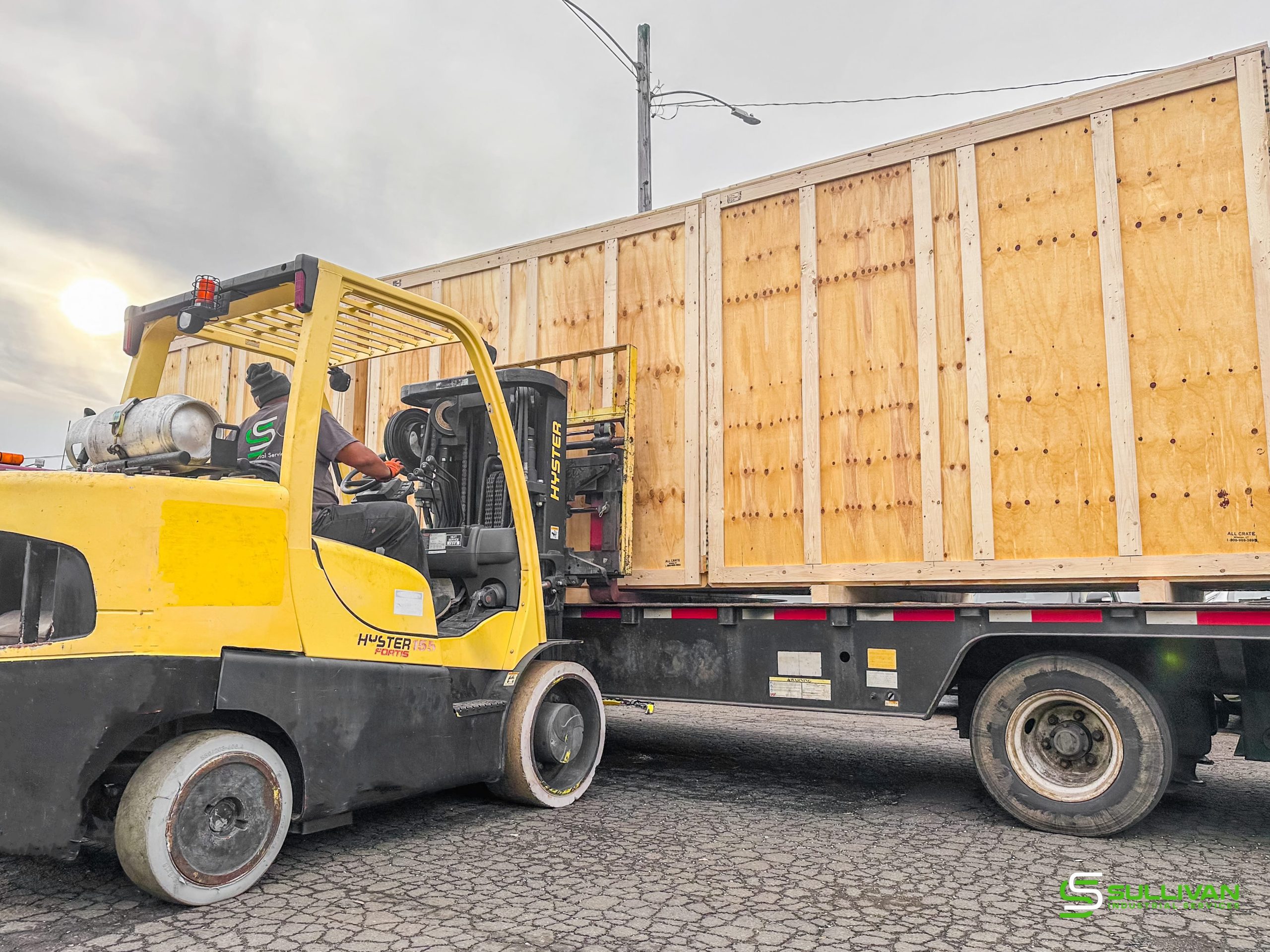Introduction
Relocating a plant or factory involves numerous considerations and requires careful planning to ensure success. With its strategic location and robust economic landscape, Connecticut presents a compelling option for companies seeking to relocate. This guide explores the benefits of moving your industrial operation to Connecticut, essential site selection factors, services offered by relocation specialists, and other critical aspects of the relocation process.
Contact Sullivan Industrial Services when Moving Your Factory or Business to Connecticut

Benefits of Relocating to Connecticut

Strategic Geographic Location
Connecticut’s location in the northeastern United States offers numerous advantages for businesses. It is situated between the major metropolitan areas of New York City and Boston, providing access to a vast market and multiple business opportunities. The state’s infrastructure includes a well-developed network of highways, railroads, and ports, facilitating efficient transportation and logistics.
Economic Growth and Opportunities
Connecticut boasts a diverse and growing economy. Key industries include finance, insurance, manufacturing, and bioscience. The state’s commitment to innovation and technology has attracted numerous startups and established companies, fostering a dynamic business environment. Connecticut’s GDP growth and low unemployment rates are indicators of its economic vitality.
Access to Skilled Labor
Connecticut has a highly educated workforce, thanks to its excellent educational institutions such as Yale University, the University of Connecticut, and several prestigious private colleges. The state’s emphasis on education and training programs ensures a steady supply of skilled labor, making it an attractive location for businesses requiring specialized skills and expertise.

Plant Relocation and Reorganization Guide
For one reason or another, you may find it more beneficial to relocate your plant. An endeavor easier said than done. There is a lot that goes into relocating and reorganizing a plant or shop. You have to consider your employees, equipment, budget, productivity, etc.
Site Selection and Planning
Key Factors in Choosing a Location
When selecting a site for relocation, businesses should consider factors such as proximity to suppliers and customers, availability of skilled labor, transportation infrastructure, and real estate costs. Evaluating these factors helps identify locations that align with the company’s operational needs and strategic goals.
List of Popular Locations in the State for Plants & Factories
- Hartford – Known for its insurance industry and central location.
- New Haven – Home to Yale University and a hub for biotech companies.
- Stamford – A financial center with proximity to New York City.
- Bridgeport – Offers port facilities and a growing manufacturing sector.
- Danbury – Known for its strong industrial base and favorable business climate.
Rigging, Crating, and Heavy Hauling Across CT & the North East
Sullivan Industrial Services is warehoused in Milford, CT with a second location in Bloomfield, CT, and serves small and large businesses throughout Connecticut and the North East including but not limited to:
Common Services Offered by S.I.S for Relocating
Rigging and Machine Moving Services
Relocating industrial machinery requires precision and expertise. S.I.S. offers comprehensive rigging and machine moving services to ensure safe and efficient relocation. Our services include:

- Detailed planning and project management to minimize downtime.
- Use of specialized equipment for handling heavy machinery.
- Experienced rigging professionals to ensure safety and accuracy.
- Custom solutions tailored to specific machine requirements.
- Coordination with other relocation services to streamline the process.
Heavy Haul Trucking and Logistics
Moving heavy machinery and equipment involves logistical challenges. S.I.S provides heavy haul trucking and logistics services, offering:

- Route planning and permitting to ensure compliance with regulations.
- Use of specialized trailers and trucks for heavy loads.
- Coordination with local authorities for smooth transportation.
- Real-time tracking and communication during transit.
- Expertise in handling oversized and overweight loads.
Custom Crating Solutions
Protecting valuable equipment during transit is crucial. S.I.S offers custom crating solutions designed to:

- Provide tailored protection for each piece of equipment.
- Use high-quality materials for durability and security.
- Design crates to meet specific transportation requirements.
- Ensure compliance with industry standards and regulations.
- Offer on-site crating services for convenience.
Warehousing and Storage Options
S.I.S. offers flexible warehousing and storage options to accommodate various needs. Their services include:

- Secure storage facilities with 24/7 surveillance.
- Climate-controlled environments for sensitive equipment.
- Short-term and long-term storage solutions.
- Inventory management and tracking systems.
- Easy access and retrieval services.
Project Management and Coordination
Effective project management is key to a successful relocation. S.I.S provides comprehensive project management and coordination services to:

- Develop detailed relocation plans and timelines.
- Coordinate all aspects of the move, including logistics and staffing.
- Communicate regularly with clients to provide updates and address concerns.
- Ensure compliance with safety and regulatory requirements.
- Minimize disruption to business operations.
Compliance and Regulatory Considerations
Navigating Regulations
Businesses relocating to Connecticut must navigate various regulations, including zoning, environmental, and labor laws. Understanding and complying with these regulations is essential to avoid legal issues and ensure a smooth transition.
New Zoning Regulations:
Effective July 1, 2024, Connecticut has implemented new zoning regulations under Title 8 of the Connecticut Administrative Code, which aim to streamline processes for businesses in economic and community development sectors.
Labor Law Updates:
The state has expanded its labor laws to include paid sick leave requirements for workplaces with 25 or more employees, which will extend to smaller businesses over the next three years. July 1 marks the start of over 90 new laws in CT.
Environmental Compliance:
Companies must adhere to updated environmental regulations, including those related to waste management and emissions control, to maintain compliance during and after relocation.
Ensuring Safety Standards
Maintaining high safety standards during relocation is crucial to protect employees and equipment. This involves adhering to OSHA regulations, conducting risk assessments, and implementing safety protocols throughout the relocation process.
OSHA Compliance:
Adherence to OSHA regulations is mandatory, including updated standards for workplace safety and health.
Risk Assessments:
Conducting comprehensive risk assessments to identify potential hazards and implementing mitigation strategies is essential.
Financial Incentives and Grants
Available Incentives
Connecticut offers various financial incentives to attract businesses, including tax credits, grants, and low-interest loans. These incentives are designed to support business growth and offset relocation costs.
Boost Fund Loans:
The state’s Boost Fund loans provide financial support specifically aimed at small businesses, helping them manage relocation expenses and operational costs (https://business.ct.gov/).
Tax Credits and Grants:
Various tax credits and grants are available to businesses that meet specific criteria, aimed at promoting economic development and job creation (https://business.ct.gov/).
Applying for Grants
Applying for grants requires a thorough understanding of eligibility criteria and application processes. Businesses should seek guidance from state agencies and professional consultants to maximize their chances of securing financial support.
State Resources:
Connecticut’s official business portal offers comprehensive guidance on available grants and loans, ensuring businesses can effectively navigate the application process.
Eligibility Criteria:
Detailed information on eligibility criteria and application procedures is available through state resources, helping businesses to prepare and submit successful grant applications.
Quality of Life in Connecticut

Living Conditions for Employees
Connecticut offers a high quality of life with excellent schools, healthcare facilities, and recreational opportunities. The state’s diverse communities and vibrant cultural scene make it an attractive place for employees to live and work.
HUSKY Program Expansion:
The recent expansion of the HUSKY program now includes more young people, enhancing access to Medicaid for residents aged 15 and under.
Education and Healthcare:
The state boasts top-rated schools and healthcare facilities, contributing to a high standard of living for employees and their families.
Community and Amenities
Connecticut’s communities are known for their safety, cleanliness, and welcoming atmosphere. Amenities such as parks, museums, and restaurants contribute to a high standard of living, making it easier to attract and retain talent.
Play-Based Learning:
New laws require schools to provide play-based learning, enhancing educational experiences for young residents.
Standardized Rental Agreements:
Recent legislation mandates standardized rental agreement forms to protect tenants and landlords, improving community stability and quality of life.

Conclusion
Relocating to Connecticut offers numerous benefits, from strategic location and economic opportunities to a high quality of life for employees. With careful planning and the right support services, businesses can successfully navigate the relocation process and thrive in their new environment.

Recent Comments